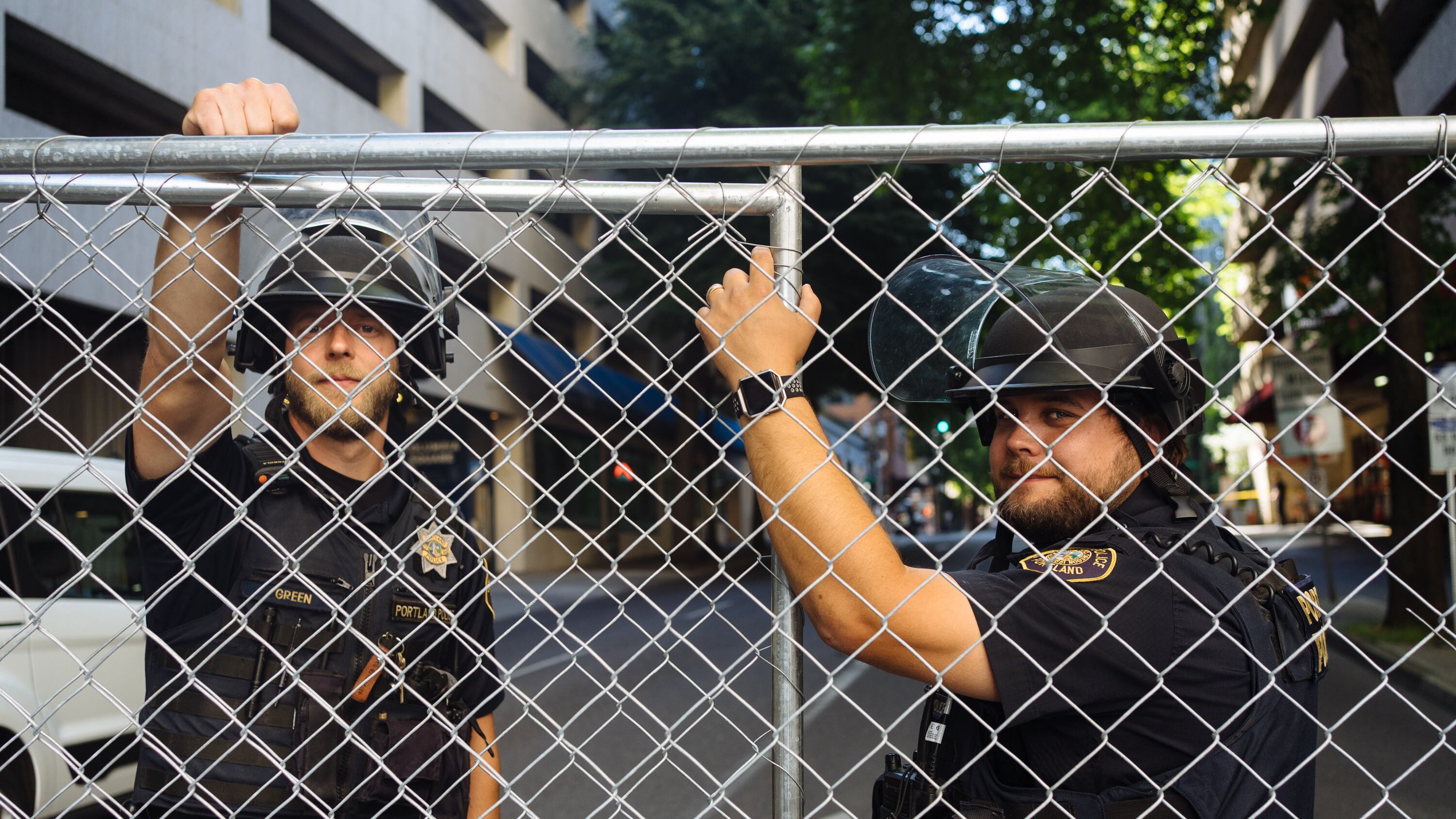On June 2, as protests surged through the nation, presumptive Democratic presidential nominee Joe Biden called for Congress to immediately pass "a down payment on what is long overdue"—that is, specific legislation to reform policing—and get it to the president's desk. He lent his support to bills that outlaw choke holds by police officers, end the transfer of military equipment to police departments, and set up a model standard for officers' use of force.
That's about as likely to happen within the next month as landing a man on Venus.
But Oregon is a state where Democrats hold the governor's mansion and both branches of the Legislature, so the chances here are much improved. Gov. Kate Brown issued a remarkably guilt-inflected admission June 1 as she announced her decision to mobilize the Oregon National Guard to help support Portland police during the protests: "I count myself as one of the many white politicians whose good intentions haven't done enough to tackle the scourge of systemic racism."
That may not be the end. State Sen. Lew Frederick (D-Portland) said he could bring up to 15 bills to future sessions.
"I will be introducing a series of bills to deal with arbitration, to deal with use of force, vetting what kind of training takes place," he said, speaking June 1 at the governor's press conference where she announced her decision to call up the National Guard. "I've been introducing some of these bills for quite a while."
The Oregon Legislature's People of Color Caucus, which includes nine lawmakers, said it wants three specific proposals to come before a special session dedicated to the state's COVID-19 response. The plan has the backing of House Speaker Tina Kotek (D-Portland): "I firmly support the action plan put forth by the POC Caucus and will do everything I can to get this work done." Gov. Brown's office says she supports the first of the three proposals, but did not address the question of a special session.
Here are three bills she is likely to see:
Prohibit an arbitrator from reducing penalties for misconduct findings against police officers. Right now, an independent arbitrator can rule on an officer's appeal of disciplinary action and on findings of misconduct. The bill would limit the authority of arbitrators to ease disciplinary action if they agree with a misconduct finding.
Make the Oregon attorney general responsible for investigating injuries and deaths when officers deploy force—and prosecuting them as appropriate. Currently, local jurisdictions are responsible for their own investigations of police, and the county district attorney prosecutes as appropriate. The proposal would set up a more independent review.
Begin strengthening Oregon's standard for police use of force. The details of this proposal remain unclear. But lawmakers argue the state needs to set more defined boundaries on when force may be used by officers. They propose convening a bipartisan work group in the special session to bring a bill in 2021.
